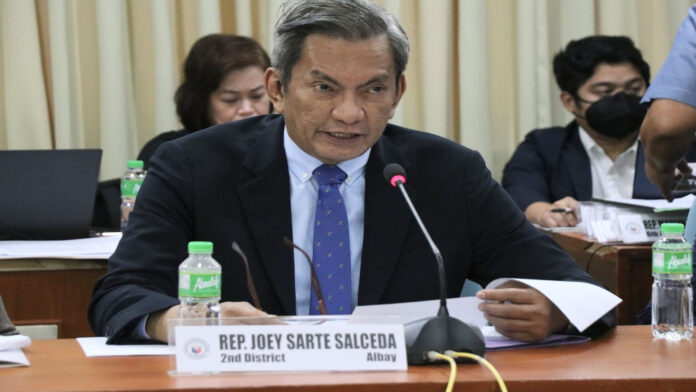The chair of the House Ways and Means Committee on Tuesday committed to the Bureau of Internal Revenue (BIR) the passage of a measure that will punish the selling and issuance of fake receipts to pad gross expense and creditable input value-added tax (VAT).
During the briefing by the Development Budget Coordination Committee (DBCC) for the House Committee on Appropriations, House Ways and Means chair Joey Salceda called such an act as “ghosting the tax authority” because “ghost companies” issue fake receipts to taxpayers to defraud the tax collection agency.
He said receipts from expenses not considered valid sometimes are used to pad deductibles.
“In support of attaining the revenue goals of the Bureau, we will draft that measure today,” Salceda told BIR Officer-in-Charge (OIC) Deputy Commissioner Maridur Rosario.
“We will draft legislation so that selling and buying receipts to pad your deductible expenses or input VAT is non-bailable, using the lifeblood doctrine. Tax ghosting is non-bailable,” he added.
He said the proposal will penalize both the buyer and seller for tax fraud.
Salceda noted that the Tax Code imposes penalties and surcharges only on those who use fake receipts for tax fraud.
He particularly cited Section 248 of the Tax Code, which imposes, in addition to the tax required to be paid, a penalty equivalent to twenty-five percent of the amount due.
“That penalty is not enough of a deterrent, and if my conversation with DepCom Rosario is right, it’s still unclear whether the seller of fake receipts and other accessories to the crime are liable,” he said.
He said the practice is fairly common among family corporations, some of whom use household expenses to pad their corporation’s gross taxable income.
“We will introduce both penal provisions and civil penalties, as well as tax administration provisions to make it easier for the BIR to identify which receipts are fraudulent,” he said. (PNA)
Photo credit: House of Representatives Official Website


